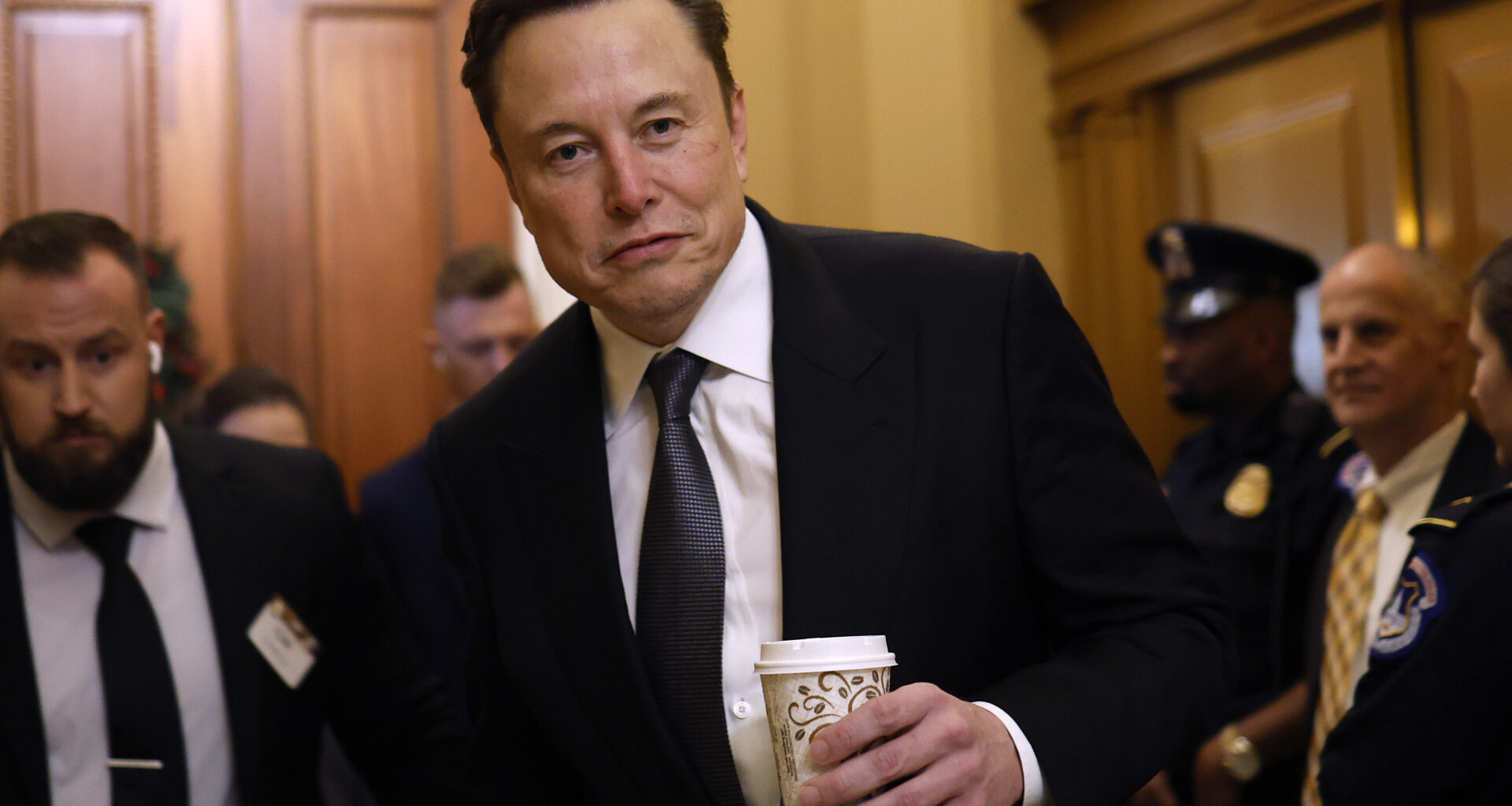President Donald Trump‘s Department of Government Efficiency (DOGE) has shut down 146,000 government credit cards in just two weeks in an effort to curb waste and fraud within the federal government.
The newly formed department, which is headed by billionaire Tesla, SpaceX and X, formerly Twitter, executive Elon Musk, audited unused or unneeded cards across 16 agencies.
Why It Matters
DOGE recommended mass layoffs in the federal government as a means to eliminate $2 trillion annually in funding from U.S. agencies.
According to an executive order from Trump, DOGE will oversee all government payments, instead of those payments being up to the agencies who need to use the credit cards. It is unclear how making one agency review billions of dollars of payments across multiple different organizations will increase efficiency.

Tesla CEO Elon Musk, chair of the newly announced Department of Government Efficiency (DOGE), arrives on Capitol Hill on December 5, 2024, in Washington.
Tesla CEO Elon Musk, chair of the newly announced Department of Government Efficiency (DOGE), arrives on Capitol Hill on December 5, 2024, in Washington.
Anna Moneymaker/Getty Images
What To Know
DOGE provided an update on X on Wednesday, sharing that the department had deactivated roughly 145,000 credit cards in two weeks across 16 agencies.
“As a reminder, at the start of the audit, there were ~4.6M active cards/accounts, so still more work to do,” DOGE wrote on X.
Musk retweeted the post from DOGE and added: “There are still almost twice as many credit/purchasing cards as people in the government, and the limits are $10,000!” he wrote. “A lot of shady expenditures happening.”
DOGE has also capped many federal workers’ credit card limits at $1, causing some to say they are no longer able to adequately perform their jobs.
Credit cards for federal workers can be used for a range of expenses, from gas for cars used during work hours and lab supplies to work-related travel costs.
Last week, Trump issued an executive order that “all credit cards held by agency employees shall be treated as frozen for 30 days,” unless used for disaster relief.
According to DOGE, 4.6 million government credit cards resulted in $40 billion in spending last year.
A 2014 congressional review revealed that government credit cards were being used for personal purchases, with the largest amount spent by an agency at $76,500.
The Government Card Charge Abuse Prevention Act of 2012 already requires the Inspector General to audit all agencies with more than $10 million in travel card spending. These audits are then delivered to the head of the United States Office of Management and Budget (OMB). The Act also says that “records are kept of each holder of a purchase card and the applicable transaction limits.”
What People Are Saying
Alex Beene, a financial literacy instructor for the University of Tennessee at Martin, told Newsweek: “Typically, credit cards issued to government employees are strictly for consistent charges associated with work that employee does, like travel or business-related resources. These are not issued for spending sprees, but rather to have accountability and transparency in the tracking of what employees spend. Any drop-off in card accounts is more than likely attributed to recent layoffs and cutbacks at the federal level, but it’s unlikely we’ll see the government stop using cards, as they’re usually a reliable means of tracking purchases.”
Kevin Thompson, a finance expert and the founder and CEO of 9i Capital Group, told Newsweek: “Credit cards are constantly expiring and being reissued, which creates a temporary overlap. This often results in a higher number of active cards at any given time. They want to shut them down to prevent active cards from being used as thousands of employees leave the government.”
Michael Ryan, a finance expert and the founder of MichaelRyanMoney.com, told Newsweek: “These aren’t your typical consumer credit cards. We’re looking at lifelines for federal agencies—cards that keep the lights on, quite literally. Need to book a last-minute flight for a critical meeting? There’s a card for that. Emergency maintenance part for a military vehicle? Yep, another card. Office supplies for a research lab working on something that could change the world? You guessed it—another card.”
What Happens Next
As DOGE shuts down the cards, it’s likely to slow the process of funding government projects and paying contractors, Thompson said.
“It could also create bureaucratic delays as government oversight becomes more involved in determining which deals receive funding and their level of priority,” Thompson said.
Ryan said the canceled cards could cause Veterans Affairs hospitals to be unable to quickly restock critical medical supplies. Research teams may also be unable to purchase emergency equipment efficiently.
“Sweeping changes like this rarely go smoothly,” he said. “Sure, there might be some inefficiencies to trim, but wholesale card shutdowns? That’s just performing surgery with a sledgehammer.”
